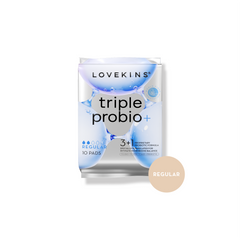Parenting doesn’t always feel powerful, does it? We usually feel vulnerable, inadequate, exhausted.
“With great power comes great responsibility”
Sure, when we first hold that baby, it can feel gloriously empowering and life-affirming…but pretty soon it becomes overwhelmingly exhausting.
We feel pulled in all directions. We feel depleted at the end of every day. We feel we can never be enough, never fully meet the demands of children, work, partners, the household and often last of all, self-care.
The power to raise well-adjusted and resilient kids
And yet every day we have the power to soothe, reassure and inspire – and keep a small human alive.
Plus, neuroscience tells us that we have the power to raise secure, self-confident and kind kids. This is positive news: regardless of our own upbringing or circumstances, we have the power to help our kids grow up to feel assured, connected and worthy of goodness.
We just need to provide a loving, calm, nurturing and stimulating environment, particularly in early childhood.
It’s the word “just”, that’s the killer, isn’t it? We just need to be calm, wise, generous and present. We just need to face their emotions and tantrums and whingeing and fighting with love and grace. We justneed to model healthy ways to respond to stress; we just need to teach them how to build healthy relationships.
It’s incredibly difficult to do this perfectly when we’re feeling stressed, tired and pulled in all directions.
The key is to find ways to build our own inner calm and inner resources, despite the stress, so we can give our children what they need.

Here are six ways to boost your parenting superpowers – and be the rock your kids need you to be:
6 WAYS TO TOP UP YOUR PARENTING SUPERPOWERS
1. PRACTICE BEING PRESENT
Being mentally and emotionally present is the greatest gift you can give your child. They need to know they matter. They need eye contact, attention, to feel seen and heard.
Being present helps our child, and it also helps us. The more we focus on the present moment, the less we will stress unnecessarily about the past or future.
However, being present is extraordinarily difficult for most of us. Even when we are physically with our child, our minds are often elsewhere. Stressing over what happened today or how we’ll cope with tomorrow; rehearsing conversations, or just figuring out dinner.
Being present comes only with practice. Practice stopping, breathing and focusing on what you’re doing, be it the washing up, changing a nappy or walking down the hall. You may need to redo this multiple times a minute at first.
One useful tip is to create a “presence reminder”: use a visible object to remind you to be present. This could be a coloured band on your wrist, or a particular picture on the wall of your living room. Whenever you see it, it reminds you to breathe, and bring yourself back to the now.
2. CONTROL YOUR DEVICE
Let’s be honest, a lot of the time our smart phones stop us being present. We obsessively check for emails or updates; even when we don’t need to.
(Did you know: checking your smart is a neurological addiction. Every time you see a new post update or email, your brain gets a hit of dopamine, the pleasure-seeking neurohormone, which then makes us crave another hit and another.).
Sure, there are times you need to respond to urgent emails and phone calls; after all the rest of the world is still working at 5pm when you’re trying to manage a tired toddler. However, a lot of the time, our phone usage at home is simply an attempt at escape from the chaos.
Firstly, consider why you’re looking to social media this time of day. Do you feel lonely, wishing you had more support to face this witching hour? Do you need a moment to yourself?
Secondly, put an out of office message on your email every evening from 5pm. People can call you if it’s urgent.
Third, don’t rely on discipline alone. Put an app on your phone that prevents you from accessing social media at certain times of day, or delete social apps entirely from your phone, so you only look when you’re in front of your computer.

3. ACCEPT AND MANAGE STRESS
It’s a vicious cycle. You feel stressed, and you know your children pick up on your stress, which makes you feel even more guilty and stressed.
Plus, when you’re stressed you tend to focus on the negative, and overreact to minor things. Your kids feel uncertain, never sure when mum or dad are going to freak out, so they start acting up
Fortunately, there are proven, evidence-based techniques you can use to lower your overall stress and improve how you manage your stress.
Try CBT and ACT
Cognitive-behavioral therapy (CBT) and Acceptance and Commitment Therapy (ACT) help you manage your thoughts so you’re less reactive to stress. There are literally hundreds of studies that prove their effectiveness in dealing with stress.
Both help you become more aware of your inner voice, and your reactions to stressors, so you can choose your reaction. Ideally, you’d practice these with the help of a counselor or psychologist, although there are a number of online courses.
4. BUILD HAPPINESS
It turns out that taking time for happiness isn’t a selfish indulgence. It can boost our resilience to stress, in the same way that exercise helps build our muscles.
Fill your spare time with “positive content”: search out good news, enjoy your children’s laughter. Soak it in.
Every day, do at least one thing that you enjoy, even if it seems to serve no functional purpose. The purpose is building your happiness, and lowering your household stress levels.
5. EMBRACE UNCERTAINTY
Nothing makes us feel more disempowered than uncertainty, yet our life is filled with it.
You don’t know the answer to your child’s question (what makes the wind blow?), you don’t know how to fix the dishwasher, and you don’t know if you should move cities for that job.
That’s ok. Your child will face endless ambiguity in their lives. And, while they will look to you as a safe all-knowing being, they also look for a template for what to do when they don’t know.
So show them how to face uncertainty.
- Learn: you don’t know the answer? Let’s find out! “Why don’t we Google that when we get home”.
- Seek support: dishwasher busted? Show your kids how to call on help when they need it. “I don’t know how to fix this, but I’ll call my friend Rod who does,” OR “There’s a customer support line I can call to talk to the people who made the dishwasher.”
- Focus on what is known: “We don’t know yet where we’ll live, but we do know we’ll all be together and mum and dad will be here for you every day, and all your toys will come too.”
6. KISS (KEEP IT SIMPLE, STUPID)
There’s a lot of pressure on parents these days to be perfect. As a parenting expert, Charles Fernyhough PhD says, “Since when was ‘to parent’ a transitive verb? Do you ‘wife’ your husband or ‘daughter’ your mother?”
Rather than focusing on everything a good parent is supposed to do, focus on all little things you can do.
Remember the power of an encouraging smile, the power of a hug at the end of a tantrum, the power of tucking your child into bed at night, with a loving kiss. It’s these little things that make an infinite difference.













